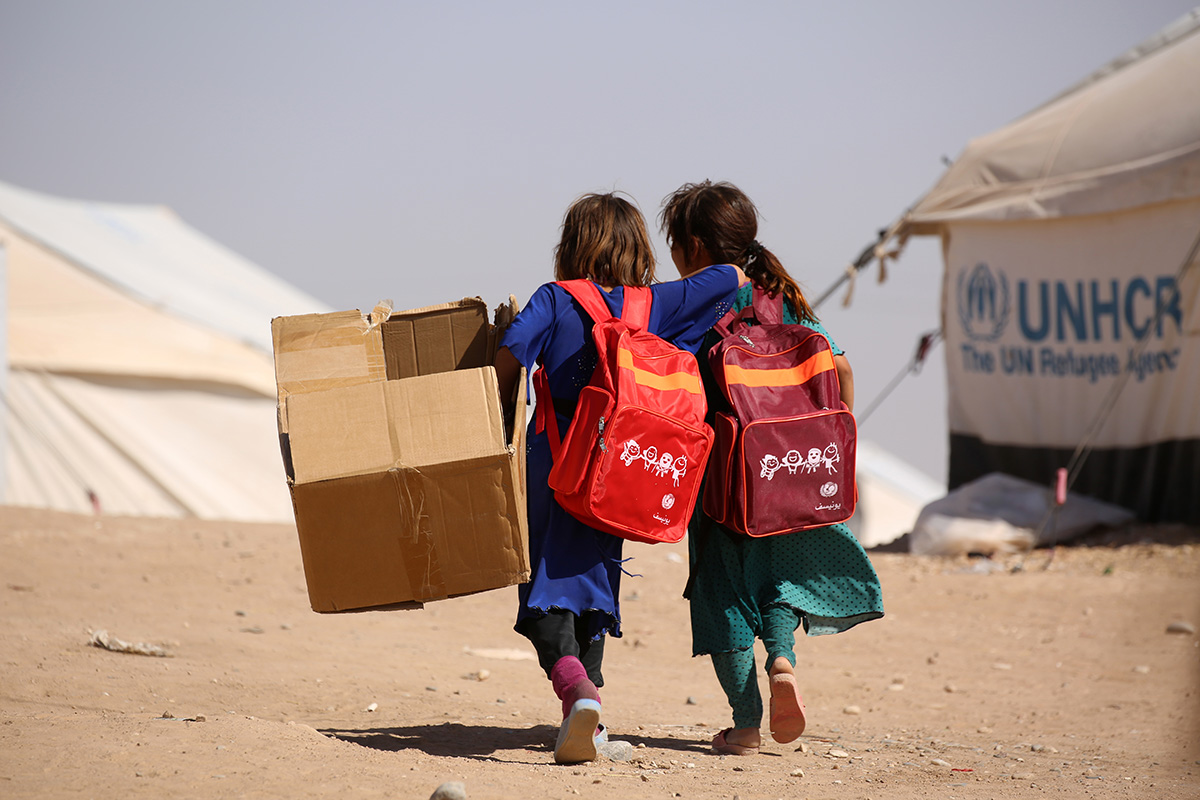GENEVA – The world’s refugee crisis is most often measured in numbers. But for young refugees missing out on an education, the crisis can also be tracked by an irreversible metric: the passage of time. Of the 17.2 million people that the United Nations High Commissioner for Refugees (the UN Refugee Agency) is responsible for protecting, roughly half are under the age of 18, meaning that an entire generation of young people, already robbed of their childhood, could lose out on a future as well.
School-age children form a large share of the world’s displaced population. At the end of 2016, there were an estimated 11.6 million refugees experiencing “protracted displacement”: they have been away from their homes for more than five years and have no “immediate prospects” of return. Of these, 4.1 million have been refugees for at least 20 years, longer than the amount of time the average person spends in school.
The case for refugee education is clear. Childhood should be spent learning how to read, write, count, inquire, assess, debate, calculate, empathise, and set goals. These skills are especially important for those who will be called upon to rebuild their countries when they return home. Moreover, education provides refugee children a safe space amid the tumult of displacement. And education can even help ensure the peaceful and sustainable development of the communities that have opened their doors to displaced families.
Unfortunately, for many of the 6.4 million school-age refugees currently under the mandate of the UN Refugee Agency, access to education remains a luxury. Whereas 91 percent of children worldwide attend primary school, enrolment among refugee children is just 61 percent, and falls to 50 percent for in low-income countries, where more than a quarter of the world’s displaced people live. As refugee children get older, the education gap widens. Just 23 percent of refugee adolescents are enrolled in secondary school, compared to 84 percent globally. In low-income countries, a mere nine percent of refugee children are enrolled in secondary school.
As for post-secondary education – the crucible in which tomorrow’s leaders will be forged – the picture is dismal. About a third of young people around the world pursue a college degree or advanced training; but, despite scholarships and other incentives, the percentage of refugees who do so is a mere one percent.
In September 2016, politicians, diplomats, officials, and activists from around the world gathered at the UN to chart a path forward for addressing the plight of the world’s refugees. The result was the New York Declaration for Refugees and Migrants, signed by 193 countries, which emphasised education as a critical element of the international response. Furthermore, one of the UN’s 17 Sustainable Development Goals, which are aimed at ending poverty and promoting prosperity by 2030, is designed to deliver “inclusive and quality education for all and to promote lifelong learning” (SDG 4).
But, despite overwhelming support for the New York Declaration, and for the principles set out in SDG 4, young refugees remain in danger of being left behind. The international community must now match its rhetoric with action.
Education must become an integral part of the emergency response to any refugee crisis. Classroom learning should be given high priority, to help provide a protective and stable environment for the youngest refugees. Because education not only imparts life skills, but also promotes resilience and self-reliance, and helps address the psychological and social needs of children impacted by conflict, it is a basic need for refugees.
Providing educational opportunities to displaced young people will require long-term planning and investment; it cannot be an afterthought. Financing for refugee education must be sustainable, predictable, and holistic, both to enable education systems in refugee-hosting countries to plan accordingly, and to ensure that children’s schooling is not suspended when a new crisis erupts somewhere else.
It is also critical that refugee children are incorporated into the national education systems where they reside. Refugees, like all young people around the world, deserve a quality education – one that follows an accredited curriculum, and is based on a rigorous system of evaluation and advancement. Host countries are best suited to provide that. Where the international community can help is by doing more to support educators, especially teachers, by ensuring suitable pay, adequate teaching materials, and access to expert assistance.
The education of refugees is a shared responsibility. Last year, with the New York Declaration, governments around the world made a collective promise to invest in refugees and the communities hosting them. As the UN General Assembly convenes for its annual meetings in New York this week, global leaders must recommit to that pledge. Young refugees have no time to lose.
Filippo Grandi is United Nations High Commissioner for Refugees.
